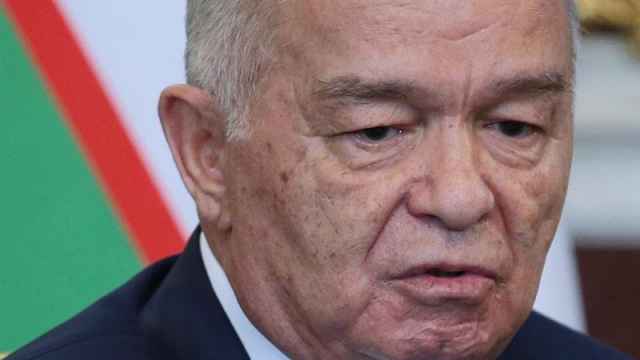Russian doctors have flown to Uzbekistan to treat the country’s ailing president Islam Karimov, the RBC newspaper reported Wednesday.
Unconfirmed media reports on Monday claimed that the 78-year old-Karimov, a strongman who has ruled Uzbekistan since 1989, had died of a brain hemorrhage.The Uzbek government have denied the reports, describing Karimov's condition as "stable."
The doctors treating Karimov are from Russia’s N.N. Burdenko Neurosurgery Institute, RBC reported, citing the institute’s scientific director, Alexander Konovalov.
“Our doctors have been there from the very first moment,” Konovalov said, claiming the Institute’s director and head of neurotraumatology, Alexander Potapov, was overseeing Karimov’s treatment.
Neither the Kremlin or the Russian embassy in Tashkent have commented on Karimov's condition. Russia’s
Deputy Prime Minister Olga Golodets announced earlier that Russia had
not received any official requests to treat the Uzbek leader.
Writing on social media Wednesday, the president’s youngest daughter thanked her father's well-wishers for their support, stoking further speculation that Karimov was alive.
"I would also like to use this opportunity and thank everyone for your kind words of support and best wishes for the speedy recovery of our President," Lola Karimova-Tilyayeva wrote on Instagram. "It means the world to us, and I am sure that your heartfelt good wishes are helping in his recovery. Thank you very much!"
While no official announcements have been made regarding Karimov’s condition, the country has reduced its program of Independence Day festivities on Sept. 1. The day will mark 25 years of independence following the collapse of the Soviet Union.
Uzbekistan’s Prime Minister Shavkat Mirziyaev, considered by many to be Karimov’s likely successor, will perform the head of state's duties at the events, RBC reported.
A Message from The Moscow Times:
Dear readers,
We are facing unprecedented challenges. Russia's Prosecutor General's Office has designated The Moscow Times as an "undesirable" organization, criminalizing our work and putting our staff at risk of prosecution. This follows our earlier unjust labeling as a "foreign agent."
These actions are direct attempts to silence independent journalism in Russia. The authorities claim our work "discredits the decisions of the Russian leadership." We see things differently: we strive to provide accurate, unbiased reporting on Russia.
We, the journalists of The Moscow Times, refuse to be silenced. But to continue our work, we need your help.
Your support, no matter how small, makes a world of difference. If you can, please support us monthly starting from just $2. It's quick to set up, and every contribution makes a significant impact.
By supporting The Moscow Times, you're defending open, independent journalism in the face of repression. Thank you for standing with us.
Remind me later.





